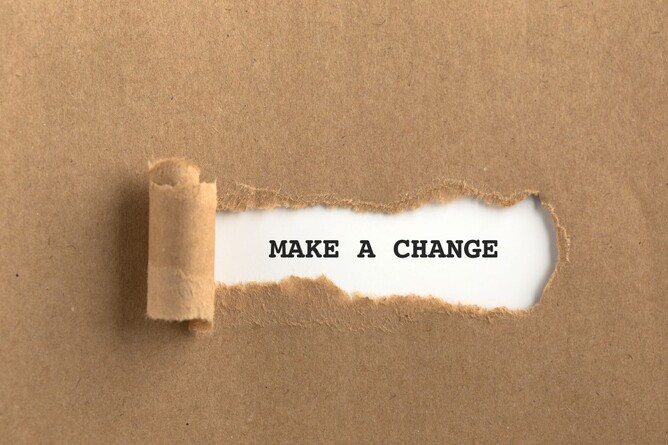Can you think of something you would love to change in yourself and wonder why it is so difficult? It can be a behaviour, a thought process, or a pattern of communication; we, humans, have quite an ambivalent relationship with change.
We will most definitely resist change if it is prompted or requested by someone else (sound familiar?). Raise your hands if the arguments with your partner, or parents, or children circle around that topic! We can see very clearly where the other person needs to change; but dare they try and make us change. We need to be in charge of our own change, and we need to be ready for it. The truth is that changing something that has been around for such a long time is a complex process and, to be able to do that, we need to acknowledge the uncertainty and the fear that comes with it. Fear of losing what is familiar; fear of not adjusting to the new way; fear that the losses will outweigh the gains. After all, changing is choosing a new path, an uncharted territory. In my work as a psychotherapist, I am faced with these dilemmas everyday. Psychotherapy is absolutely intertwined with change. Generally people reach out when something in their lives just can't go on how they are. And they can't be addressed with logic and force. It is only by understanding people's deeply rooted emotions and the needs that drive those emotions that change becomes possible. Change is not a binary, single event, or even a linear progression. Because change threatens our level of safety and security, it can only happen in stages, through back and forth attempts, in which we initially tiptoe around it, until we are able to connect with and absorb how life will look like when change is established. We need to fail. Because that is the only way we learn. Failing reveals more about what deserves our attention and energy in the next rounds. If we don't see change as a process, we will get overwhelmed by the size of the step, and demotivated by our perceived failure. So - you ask me - how does change happen?
Change happens when YOU (not anyone else) sees the need for it;
Change happens when you have clarity of the goal. When you differentiate what you are trying to achieve from what you are trying to leave behind;
Change happens each step at a time. When you are able to look at the bigger picture, and see both what you've achieved and the next step.
Change happens when you recognise what is behind those thoughts, behaviours, or communication pattern. What is underneath the tip of the iceberg. When you recognise YOUR NEEDS.
Change happens when you celebrate your successes and also have self-compassion when you fail.
Change happens when you feel safe enough to take risks.
Change happens when it is impossible to stay the same, because staying the same would hurt your beliefs about yourself, about what is important in life, and about what you are capable of.
If you are struggling to put change into practice and would like professional support, I would love to help.



